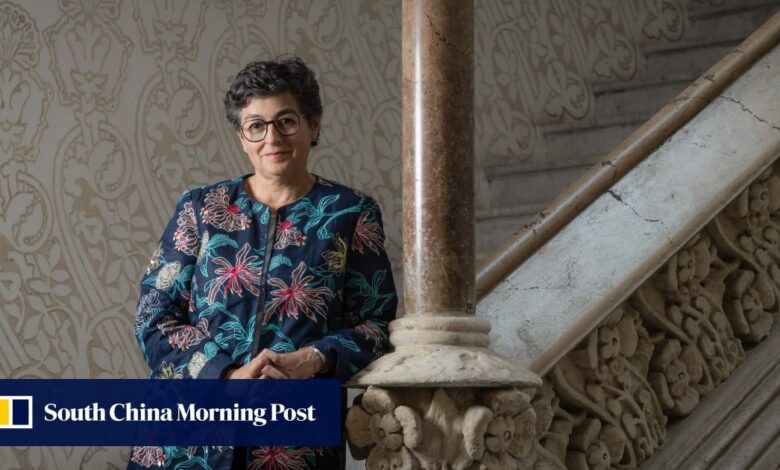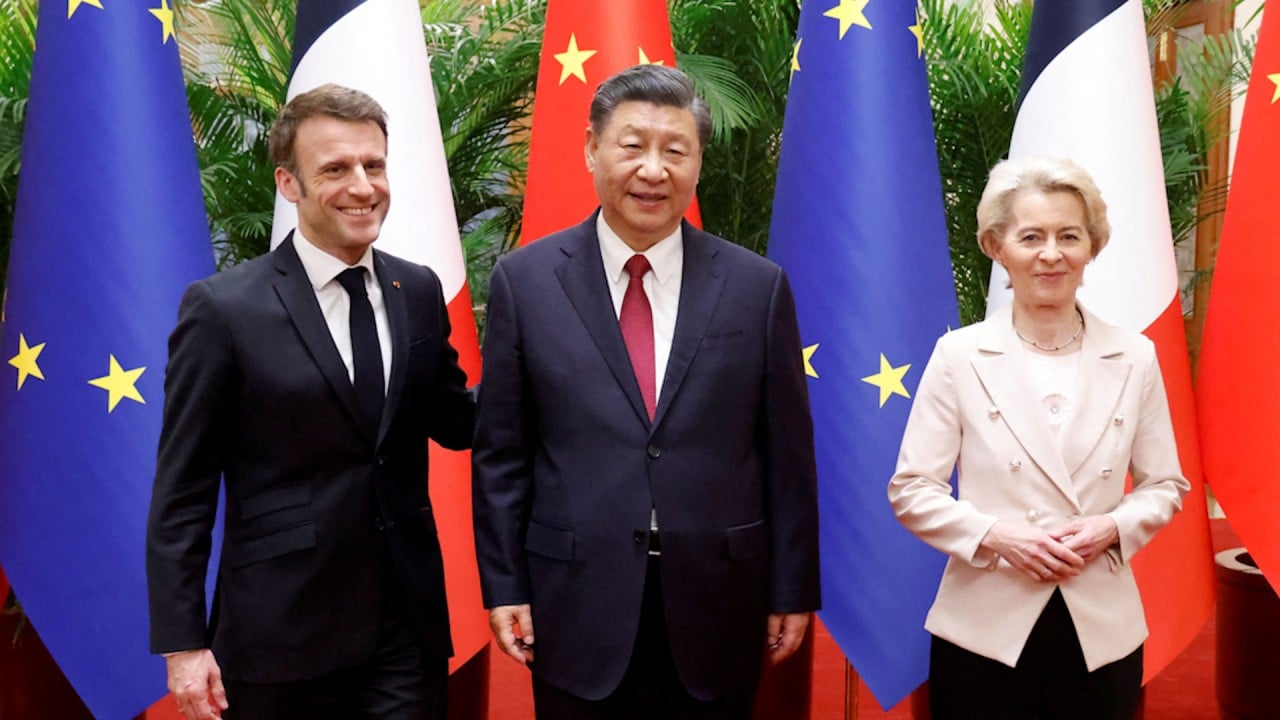EU needs better understanding of China to carve out ‘own space’, says ex-Spanish foreign minister

[ad_1]
“Europe has an alliance with the US,” she said. “[But] we don’t have to ask for permission or be ashamed of pursuing open strategic autonomy. I think it fits well with the world that is today,” said González, who served under Prime Minister Pedro Sánchez from 2020 to 2021. She is currently the dean of the Paris School of International Affairs at the French university Sciences Po.
González, who is on a working visit to China for the International Import Expo in Shanghai and to promote academic exchanges between Sciences Po and Chinese institutions, said: “We are more acutely conscious of the risk today given what’s happened to Europe.
“I do think that part of the difficulties we have today is that we do not have, at least in Europe, in my view, enough people that understand how China operates.
“Space for diplomacy starts from understanding the others … you cannot build a space for diplomacy if you’re not in a position to listen to the other side,” she said.
It has also been wary about following the US in limiting China’s access to advanced technology, fearing such measures may harm its own interests. Washington has urged its European allies to follow its lead in banning semiconductor exports and stopping the use of equipment supplied by the Chinese telecoms giant Huawei Technologies.
Tesla not part of EU probe into Chinese subsidies, but could still face duties
Tesla not part of EU probe into Chinese subsidies, but could still face duties
While the EU has said it needs to protect sensitive technology from competitors, it has yet to make public how it is going to do it, especially regarding China.
González said the EU is watching the technological competition between China and the US closely.
“Europe is less a generator of technologies,” she said. “What we do is we use technology for downstream applications … That’s our field, which is where our focus is regulatory.
“For sure we care about national security,” she said, adding that tech collaboration with China in areas such as medicine, education and agriculture continues.
China and the EU have resumed high-level meetings this year, covering issues such as climate change and green technologies.
In face of political uncertainty in the US, with Republicans in Congress starting to block support for Ukraine and Donald Trump eyeing a return to the White House, González said the EU has realised that it has to have “a greater say” in its defence relationship with the US.
4 lost years: how the EU fumbled its response to China’s belt and road
4 lost years: how the EU fumbled its response to China’s belt and road
“This is an area where for sure Europe still is punching below its weight and acting below its ambitions,” she said.
“If you look at who’s supporting Ukraine today, number one is Europe. So that should be an indication that Europe also wants to have a greater say on its own security and defence … We cannot make our security and defence dependent on the choices that Americans make for their future.”
Trump, the front runner for the Republican nomination, has expressed admiration for Vladimir Putin and hugely damaged trust with European allies as president by considering pulling out of Nato.
[ad_2]
Source link






